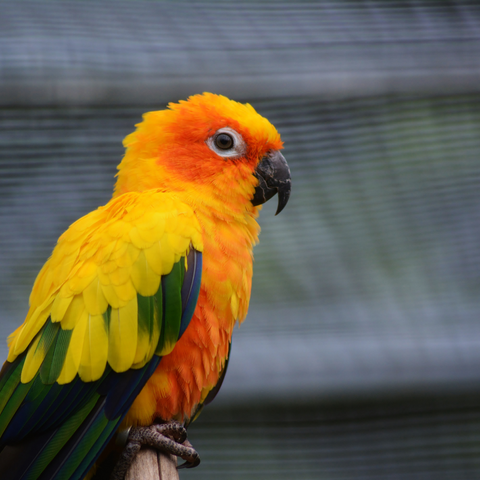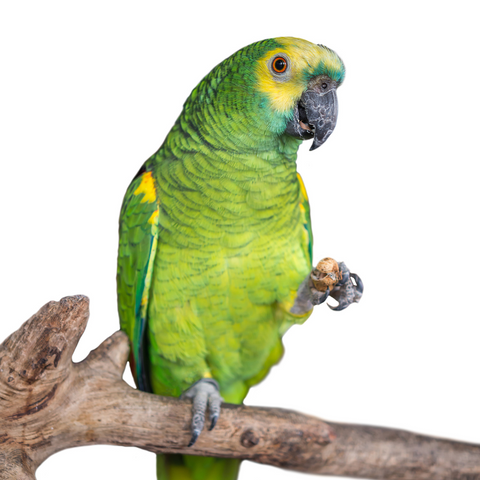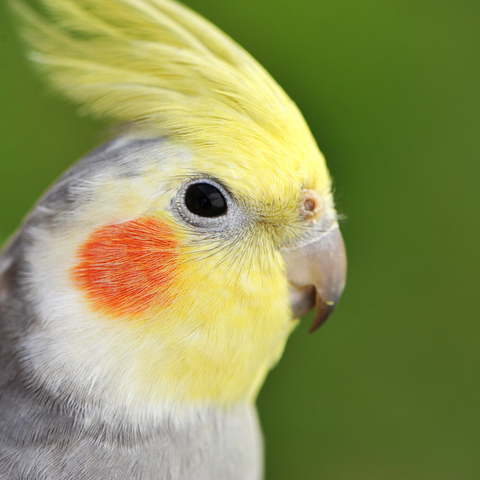Most common misconceptions about parrot diet
There are several common misconceptions about parrot diet that can lead to problems for pet parrots. Some of the most common misconceptions include the following:
-
Parrots only need seeds: Many people believe that parrots only need seeds in their diet, but this is not true. While seeds can provide some essential nutrients, they should not be the only source of nutrition for parrots. A balanced diet that includes a variety of fresh fruits and vegetables, as well as a small amount of seeds, is essential for the overall health of parrots.
-
Parrots only need commercial pellets: Commercial pellets are a common type of parrot food, but they should not be the only food that a parrot eats. Pellets can provide some essential nutrients, but they can also be lacking in other important nutrients. A balanced diet that includes a variety of fresh and dried foods is important for the health of parrots.
-
Parrots don't need fresh food: Some people believe that parrots don't need fresh food in their diet, but this is not true. Fresh fruits and vegetables are an essential part of a parrot's diet, as they provide essential vitamins, minerals, and fibre. Fresh food can also help prevent boredom and provide mental stimulation for parrots and are also a good source of hydration.
-
Parrots can eat the same foods as humans: Many people believe that parrots can eat the same foods as humans, but this is not true. There are many human foods that are toxic to parrots, and it's important to avoid feeding these foods to your pet. Some common human foods that are toxic to parrots include avocado, chocolate, and caffeine. Most human foods are overly processed, and provide absolutely no nutritional benefit to parrots.
How important is fresh and dried food for parrots?
A healthy, varied diet is crucial for the overall wellbeing of parrots. Just like humans, parrots need a balanced diet that provides them with the necessary nutrients to live a long, happy life.
Fresh foods, such as fruits and vegetables, are an important part of a parrot's diet. They provide the bird with essential vitamins and minerals, as well as fibre, which is important for maintaining a healthy digestive system. Fresh fruits and vegetables can be offered to parrots in a variety of ways, such as by cutting them into small pieces and offering them on a food dish or by using them as a foraging material.
In addition to fresh foods, parrots also benefit from the inclusion of dried foods in their diet. Dried fruits and vegetables, flowers, herbs and spices, can provide a concentrated source of nutrients, and they can also be a great way to offer a variety of flavours to your bird. Dried foods can also be used as a training tool, as they can be easily carried in a pocket and offered as a reward for good behaviour. Dried food also makes a great foraging toy filler!
It's important to remember that, just like with humans, not all parrots have the same dietary needs. Factors such as a bird's age, size, and activity level can all affect the type and amount of food that they require.
In the wild, parrots eat a varied diet that includes a wide range of fruits, vegetables, seeds, and even insects. This natural diet provides them with the essential nutrients that they need to maintain their health and well-being.
By offering a healthy, varied diet to your pet parrot, you can help mimic their wild cousins' diet and provide them with the same essential nutrients. This can help ensure that your parrot gets all of the vitamins, minerals, and other nutrients that they need to live a long, healthy life.
In addition to providing essential nutrients, a healthy, varied diet can also help prevent common health issues in parrots, such as obesity and malnutrition. By offering a balanced diet that includes a variety of fresh and dried foods, you can help ensure that your parrot stays healthy and happy.

How important are nuts and seeds for parrots?
Nuts and seeds can be an important part of a parrot's diet, but it's important to feed them in moderation. Nuts and seeds are a concentrated source of calories, and feeding too many can lead to obesity in captive parrots.
In moderation, however, nuts and seeds can provide essential nutrients such as protein, healthy fats, and vitamins and minerals. They can also be a great source of foraging opportunities for parrots, which can help stimulate their natural behavior and provide mental enrichment.
When feeding nuts and seeds to your parrot, it's important to choose unsalted, unroasted and unprocessed varieties. Salted and roasted nuts and seeds can be harmful to parrots, as they can contain high levels of sodium and other harmful substances.
It's also important to offer a variety of nuts and seeds, rather than just one type. This can help ensure that your parrot gets a balanced mix of nutrients and can prevent them from becoming bored with their diet.
Overall nuts and seeds can be an important part of a parrot's diet, but it's important to feed them in moderation and offer a variety of types. By doing so, you can help ensure that your parrot gets the essential nutrients that they need, while also providing mental stimulation and helping prevent obesity.
How does diet affect illness and disease in parrots?
There are several common illnesses that can affect pet parrots, and many of them can be related to diet. Some of the most common illnesses in pet parrots include obesity, malnutrition, and liver disease.
Obesity is a common problem in pet parrots, and it can be caused by a diet that is high in calories and low in nutrients. Overfeeding, or feeding a diet that is too high in fatty or sugary foods, can lead to obesity in parrots, which can in turn lead to a variety of health problems.
Malnutrition is another common problem in pet parrots, and it can be caused by a diet that is lacking in essential nutrients. A diet that is too low in protein, vitamins, and minerals can lead to malnutrition in parrots, which can cause a variety of health issues.
Liver disease is a common problem in pet parrots, and it can be caused by a variety of factors, including a poor diet. A diet that is high in fatty foods, or that contains toxins or other harmful substances, can lead to liver disease in parrots.
How does diet affect parrot behaviour?
A parrot's diet can have a significant impact on their behaviour. A healthy, balanced diet that includes a variety of fresh and dried foods can help promote positive behaviour in parrots, while a poor diet can lead to negative behaviour.
A balanced diet that includes essential nutrients can help keep parrots healthy and active, which can in turn promote positive behaviour. Parrots that are healthy and well-nourished are more likely to be curious, playful, and social.
On the other hand, a diet that is lacking in essential nutrients can lead to health problems, which can in turn cause negative behaviour in parrots. Parrots that are unhealthy or malnourished may become lethargic, aggressive, or fearful.
In addition, a diet that is high in calories but low in nutrients can lead to obesity in parrots, which can cause a variety of health problems and negative behaviour. Obesity can cause joint problems, liver disease, and other health issues, which can lead to negative behaviour in parrots.
In conclusion, a healthy, balanced diet is essential for the overall wellbeing of pet parrots. By feeding a diet that includes a variety of fresh and dried foods, you can help ensure that your parrot gets the essential nutrients that they need to live a long, healthy life.
It's important to avoid common misconceptions about parrot diet, such as the belief that parrots only need seeds or that they can eat the same foods as humans. By consulting with a veterinarian or avian specialist, you can determine the specific dietary needs of your pet parrot and help ensure that they get the nutrients that they need.
A healthy, balanced diet can also help promote positive behaviour in parrots, and it can help prevent common illnesses such as obesity, malnutrition, and liver disease. By providing a healthy, varied diet for your pet parrot, you can help ensure that they stay happy and healthy.



